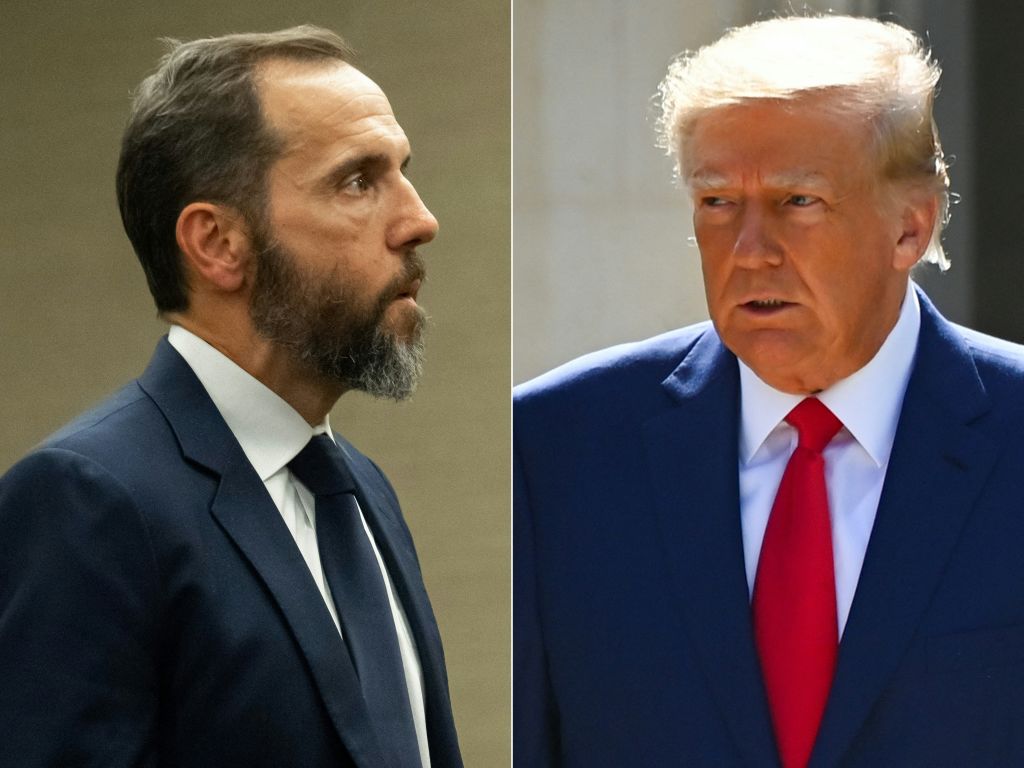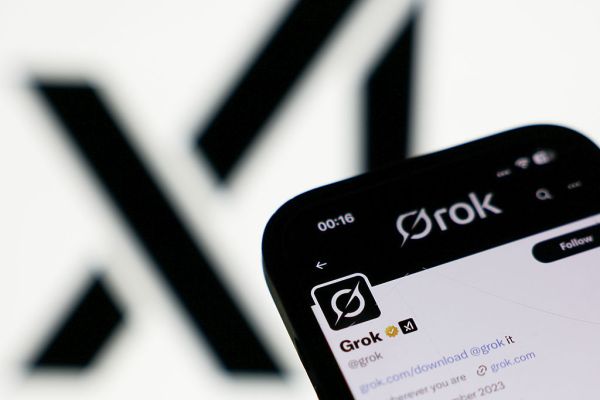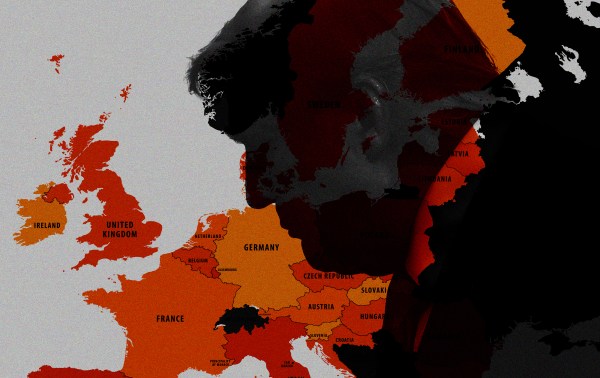Welcome back to The Collision as we revisit our favorite topic of late: presidential immunity! We’ll also get into some disturbing examples of intimidation against two of the major players in Donald Trump’s criminal trial in Washington, D.C.
The Docket
- It was never meant to be: After granting Donald Trump permission to deliver a closing statement in his civil fraud trial today, Judge Arthur Engoron seems to have thought better of it. The Associated Press reports Engoron told Trump he no longer had permission to give his own remarks a day after the former president indicated he planned to do so alongside his legal team’s closing arguments. The trial intends to determine how much Trump owes after Engoron issued a summary judgment last year finding the Republican frontrunner guilty of defrauding investors and others about the value of his and his company’s assets. Trump may also lose his license to do business in New York.
- Hunter Biden caused quite a stir on Capitol Hill Wednesday morning when he made a surprise appearance at a hearing of the House Oversight Committee, which on Wednesday night voted to advance a resolution to hold him in contempt of Congress. Biden defied subpoenas from both the House Oversight and Judiciary committees, which had requested he appear for a closed-door deposition last month as part of Republicans’ impeachment inquiry into President Joe Biden’s potential involvement in his son’s foreign business dealings. House Republicans declined his offer at the time to testify in a public setting.
- A bombshell this week from Fulton County, Georgia: “District Attorney Fani Willis improperly hired an alleged romantic partner to prosecute Donald Trump and financially benefited from their relationship, according to a court motion filed Monday which argued the criminal charges in the case were unconstitutional,” reported the Atlanta Journal-Constitution. The special prosecutor Willis hired, Nathan Wade, is a private attorney whose firm has been paid more than $650,000 by the Fulton County DA’s office since January 2022. The filing from the legal team for Michael Roman, one of Trump’s co-defendants in the racketeering case there, alleges Wade paid for vacations for him and Willis from those public funds. The filing offers no definitive proof of a romantic relationship, the paper reported, though it does allege “sources” close to Willis and Wade both confirm the allegations. A spokeswoman for Willis told the Atlanta Journal-Constitution the office would respond to the allegations “through the appropriate court filings.” CNN reported on Wednesday that Willis has been called to testify in Wade’s divorce case.
The Lesser of Two Immunities
On Tuesday, a three-judge panel of the U.S. Court of Appeals for the D.C. Circuit heard arguments about whether Donald Trump is immune from prosecution for his actions leading up to the events of January 6, 2021. Some quick background: Judge Tanya Chutkan of the D.C. District Court held that Trump was not immune from prosecution, period. This is the same question that special counsel Jack Smith tried to appeal directly to the U.S. Supreme Court.
Based on Tuesday’s arguments (and common sense), it’s likely Trump is going to lose this round.
Trump’s team has a few problems on this front, but here’s the biggest: If presidents are immune from all criminal prosecution for official acts they take while in office, then they can literally get away with murder. More on that in a bit.
Let’s back up, though, to what wasn’t at issue here. Both sides agreed that presidents can be prosecuted for private acts committed while in office. Both sides agreed that presidents can’t be prosecuted while in office. Trump’s team also conceded that a president could be prosecuted for official acts he committed while in office, if he were also impeached and convicted by the Senate for those acts.
That last one may seem odd. Why does Trump’s failed impeachment have anything to do with this? Because the text of the Constitution certainly contemplates presidents—and subordinate officers—being criminally prosecuted after an impeachment:
“Judgment in Cases of Impeachment shall not extend further than to removal from Office, and disqualification to hold and enjoy any Office of honor, Trust or Profit under the United States: but the Party convicted shall nevertheless be liable and subject to Indictment, Trial, Judgment and Punishment, according to Law.” (Emphasis added)
So the Trump team had to concede that presidents can be criminally tried after being removed from office because it’s right there in the text. The only question is whether they can be tried without an impeachment conviction. (And in case you think you’re losing your mind, yes, Trump’s attorney during Trump’s second impeachment trial argued that senators shouldn’t vote to convict Trump because he could always be prosecuted later.)
As Trump’s attorney acknowledged at the argument, under his theory of the case, a president could give an order to Seal Team 6 (an official act) to assassinate a political rival (a crime) and if he was not impeached or wasn’t convicted in the Senate, he could not be prosecuted in court after he left office. Yikes.
But Smith’s team didn’t have great answers to all questions posed to it, either. If a president ordered a drone strike that killed an American (as President Barack Obama was accused of doing), could he be charged with murder after he leaves office?
To that, Smith’s team conceded that there might be some kind of immunity there, presumably because it was an official act that didn’t have an improper purpose. But of course that would create a huge problem for Smith, who, thanks to that argument, may have inadvertently extended the pre-trial period. If the court were to hold that some presidential actions could be immune from later prosecution, then we’re about to spend a whole lot of time in court determining whether these actions qualify or not. That March 2024 trial date would be at least a year off.
Here’s a different hypothetical Smith’s team had to contend with: Could President Biden be tried in a Texas court for failing to secure the border after he leaves office? Smith’s attorney basically said “yes,” but argued that this has been the state of things for 200-plus years and we’ve made it so far without those sorts of politically retributive prosecutions. (Fine, but has he been paying attention to our politics of late?)
Smith’s team may not have had the cleanest answers to this sticky constitutional situation. But Trump is still likely to lose on the immunity question anyway—because when faced with two bad options, the judges are probably not inclined to prefer the argument that allows presidents to kill their political rivals with lifetime impunity.
Will ‘Swatting’ Be a Precursor to Violence?
The tension is rising as both Donald Trump’s criminal trials and the general election approach. Will the possibility of political violence also spill over into the justice system? Already, some troubling signs indicate the answer is “yes.”
Judge Tanya Chutkan appears to have been the victim of “swatting” after a call to emergency authorities falsely claimed there was a shooting at her Washington home on Sunday evening. According to a police report provided to The Dispatch, Metropolitan Police Department officers arrived at Chutkan’s home shortly after the call and determined no shooting had taken place and she was not injured.
One interesting wrinkle in this: Chutkan is protected by a security detail of deputy U.S. Marshals, the agency that provides all security for the federal judicial system. It’s unclear from the police report whether the marshals were also involved in responding to the swatting call.
Soon after breaking the news about the Chutkan swatting, NBC News also reported that two weeks earlier, a similar false emergency call happened at special counsel Jack Smith’s home in Maryland. The Dispatch is told that local officers were initially dispatched to Smith’s home on Christmas after a call came in claiming there was a shooting there, but were called off after Smith’s own U.S. Marshals-staffed security detail confirmed to police that there was no shooting.
While sources with knowledge say the Federal Bureau of Investigation is looking into the sources of these swatting calls, the FBI did not respond to a request for comment.
One More Thing
The danger with swatting is not just the unnecessary diversion of emergency resources but the physical risk any confrontation with law enforcement poses to victims and police alike. It’s not a directly violent act, but it certainly creates the circumstances for the use of force by police against innocent people. One infamous 2015 example of swatting by an online gamer ended with the victim being shot by police and dying from his wounds.
Swatting has emerged in recent years as a method of harassing and intimidating public figures, and political targets have been bipartisan. Republican Rep. Marjorie Taylor Greene has claimed to have been swatted several times, while in 2022, Judge Emmet Sullivan, who was presiding over the trial of a January 6 rioter, also seems to have been swatted.
Unlike the private-citizen victims of gamer pranksters, public officials in high-profile situations like Smith and Chutkan do have the added layer of protection in the form of personal security for them and their families. Those sources who spoke to The Dispatch say there is a greater awareness of the threat potential among law enforcement, and the system in place that warned local police of the false alarm in Smith’s case (though it seems to have failed in warning police in Chutkan’s case) demonstrates that.
But the targeting of these officials with such an aggressive act of harassment, especially in a post-January 6 world, may presage more dangerous threats to those involved with prosecuting Trump—made all the more likely because of how Trump himselftargets them in his rants online.








Please note that we at The Dispatch hold ourselves, our work, and our commenters to a higher standard than other places on the internet. We welcome comments that foster genuine debate or discussion—including comments critical of us or our work—but responses that include ad hominem attacks on fellow Dispatch members or are intended to stoke fear and anger may be moderated.
With your membership, you only have the ability to comment on The Morning Dispatch articles. Consider upgrading to join the conversation everywhere.